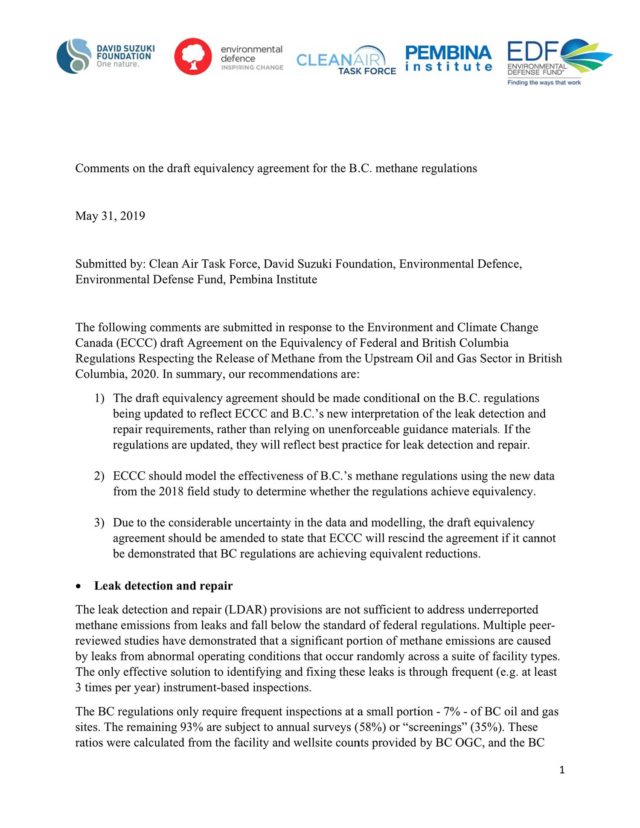Comments on the Draft Equivalency Agreement for the B.C. Methane Regulations
Published by:
David Suzuki Foundation and partners
Partners:
Clean Air Task Force,
Environmental Defence,
Environmental Defense Fund,
Pembina Institute
Climate solutions methane pollution, British Columbia, energy, greenhouse gas emissions, industry, policy and regulation
Cutting methane emissions benefits human health (methane is often released with other harmful compounds that damage air quality) and would dramatically reduce B.C.’s contribution to climate change. Setting strong standards for effective methane regulations in B.C. is particularly important as the province significantly increases fracking for natural gas.
These comments on the draft equivalency agreement for the B.C. methane regulations would strengthen B.C.’s methane regulations if adopted. Recommendations include:
- Agreement should be conditional on B.C. regulations being updated to reflect new interpretation of leak detection and repair requirements
- Environment and Climate Change Canada should model the effectiveness of B.C.’s methane regulations using data from the 2018 field study
- Agreement should be amended to state that ECCC will rescind agreement if it can’t be demonstrated that B.C. regulations are achieving equivalent reductions.
